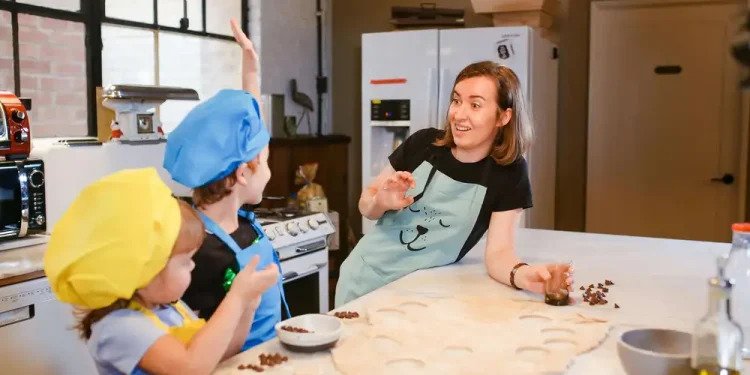The Joy of Cooking Together
Cooking with children isn’t just about preparing meals. It’s a delightful experience that serves as a canvas for learning, bonding, and fun. In busy households, mealtime can often be a rush, but incorporating children into cooking routines can transform this task into a memorable family activity.
Why Involve Kids in the Kitchen?
There are countless benefits to involving kids in cooking. First and foremost, it can be a way to instill healthy eating habits early in life. When children participate in meal preparation, they are more likely to try new foods, especially if they’ve had a hand in making it. Beyond nutrition, cooking can enhance a child’s motor skills, improve their math skills through measuring ingredients, and boost their confidence as they contribute to family meals.
Building Essential Life Skills
Cooking is not just about recipes and ingredients; it’s a life skill. By engaging in cooking activities, kids learn essential skills that contribute to their independence and self-reliance. These skills include reading and following instructions, organizing work processes, and managing time. Moreover, they learn to appreciate the effort involved in cooking and are less likely to waste food.
Simple Ways to Get Started
Getting kids started in the kitchen might seem daunting at first, but it doesn’t have to be. Here are some simple steps to introduce children to the joys of cooking:
- Choose Age-Appropriate Tasks: For younger children, tasks such as washing vegetables or mixing ingredients are simple and safe. As they grow, they can take on more complex responsibilities such as cutting or cooking on the stove under supervision.
- Make It Fun: Turn cooking into a game. Whether it’s decorating cookies or making funny faces with veggies on a pizza, creativity can make the experience more engaging.
- Explore New Recipes Together: Pick a new recipe to try together each week. Kids can help with planning, shopping, and preparing, which enhances their involvement and interest.
- Teach Cleanliness and Safety: Before starting, discuss the importance of hygiene and safety in the kitchen. This is vital for health and safety, especially when dealing with raw ingredients and hot surfaces.
Creating Lasting Memories
Cooking together creates moments that families cherish for a lifetime. These shared experiences become stories to tell, inspire future generations, and foster a lasting love for homemade meals. Beyond the kitchen, these experiences contribute to a sense of togetherness and cooperation.
Engage with Food Stories and Cultures
The kitchen is a door to the world. Introducing kids to different cuisines can be an educational experience. Discuss the history behind dishes and the cultural significance they hold, expanding a child’s understanding of the world. These conversations can occur naturally while preparing dishes, adding richness to the simple act of cooking.
Practical Tips for a Smooth Cooking Experience
Here are some practical tips to help keep the cooking process smooth and enjoyable:
- Set aside dedicated time for cooking to alleviate stress and distractions.
- Prepare ingredients beforehand to streamline the cooking process and keep it organized.
- Encourage children to ask questions and express their preferences. It’s a great way for them to learn and feel valued.
- Allow for creativity and adjust recipes to accommodate family favorites or to experiment with new flavors.
- Acknowledge their efforts, regardless of the outcome. Positive reinforcement fosters confidence and a love for cooking.
The Role of Cooking in Emotional and Social Development
Cooking naturally instills patience and perseverance. Children learn that sometimes dishes don’t come out as expected, fostering resilience. Additionally, cooking together can enhance communication skills and promote teamwork, which are crucial for their social development.
Adapting the Experience for Different Ages
From toddlers to teenagers, there are ways to adapt cooking activities. For toddlers, sensory activities with food such as flour and dough can be enjoyable. Preschoolers can participate more actively with tasks like mixing and assembling. Older children can be challenged with meal planning and cooking more independently, opening up opportunities to learn about nutrition and budgeting.
As they grow, their involvement can deepen, offering them a platform to express themselves and even develop new culinary skills that they may carry into adulthood.






